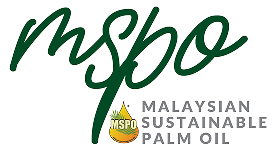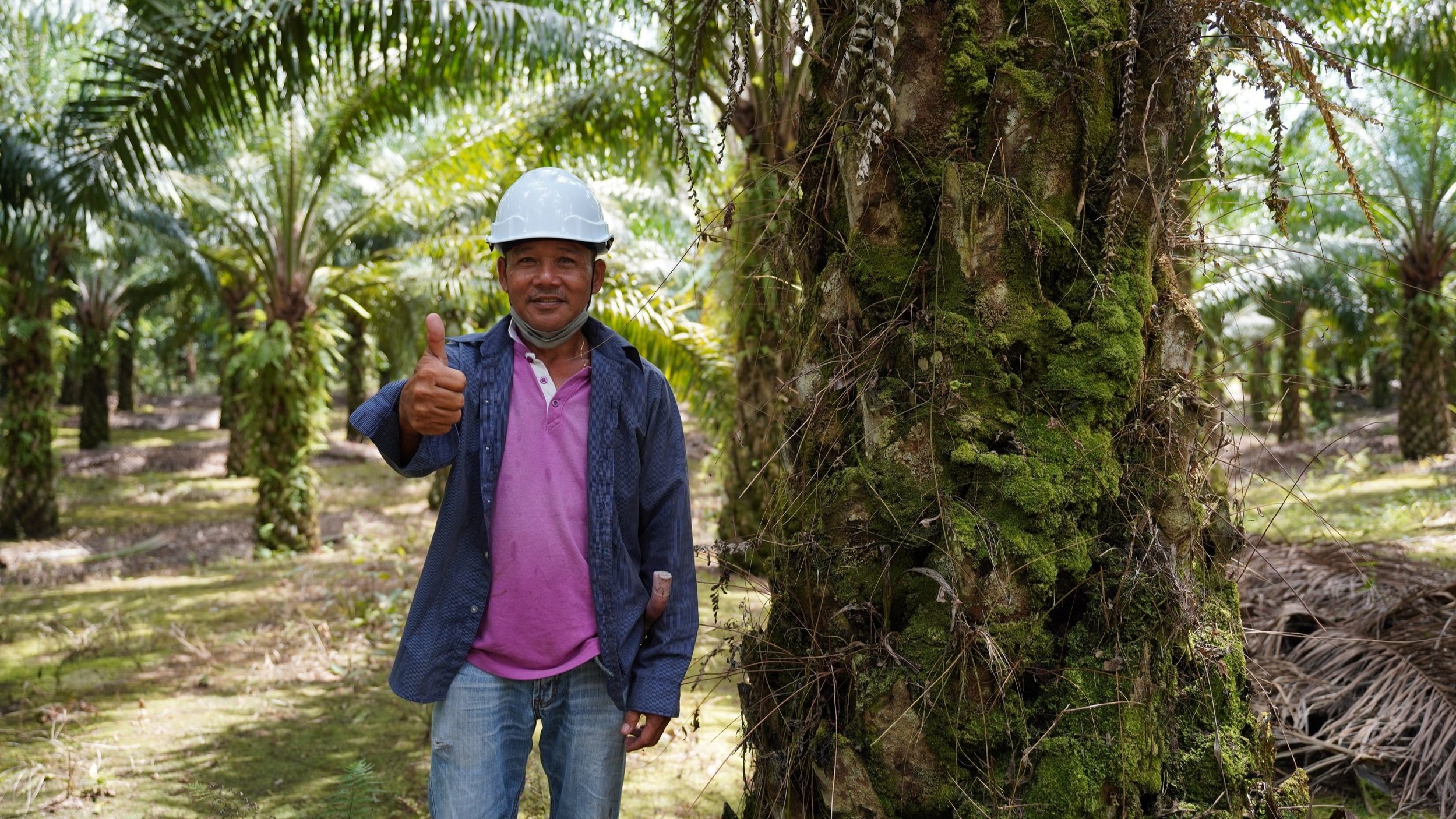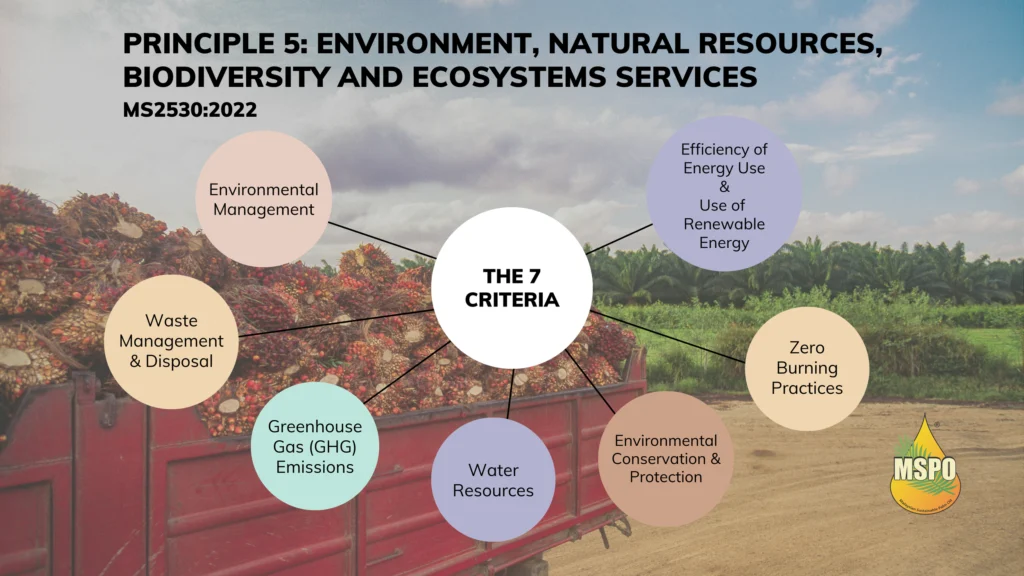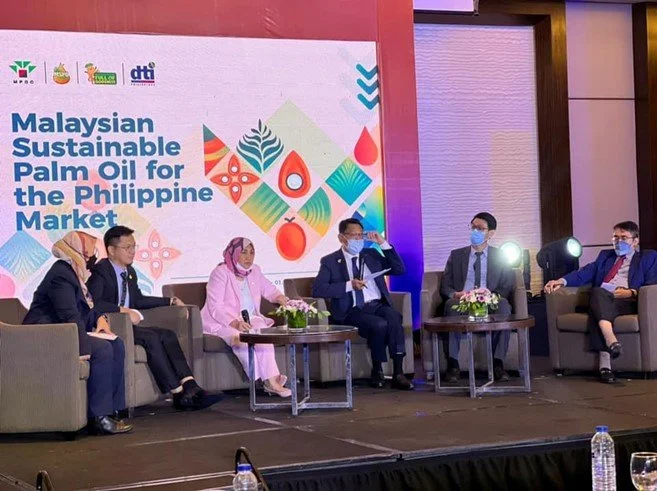Written by Sarah Nasiha Kormin, MPOCC

The production of palm oil has doubled day by day and is expected to grow even more in the future as the world demands kept on increasing. If not carefully managed, the surge of production could result in damage to forests and biodiversity and erupt in social conflict. However, sustainable management and production of palm oil with environmental protection and socio-economic benefits is very possible as it is a very holistic concept that comprises three (3) important elements or the 3Ps:
-
People
-
Planet
-
Profit
According to the MSPO Trace data as of March 2022, independent smallholders made up around 547, 528.54 hectarages, whereas for organised smallholders contributed to 771, 673. 94 hectarages of certified area. Almost 40 percent of Malaysia’s palm oil output is produced by smallholders, either independent or organised. 13.6 percent of Malaysian independent smallholders are family-run own less than 100 acres (40.46 ha) and have irregular income.
The cultivation of sustainability management can be achieved by providing the support needed and improving the livelihood of the workers. The MSPO certification has achieved this by strengthening the Certification Scheme document together with revising the standards which require every Certification Bodies (CBs) and respective clients to strictly comply. Every aspect of the social issue is covered in the revised standards which include Forced Labour, Discrimination, Child Labour, Decent Living conditions, Employee Safety and Health, Social Impact Assessment (SIA), right of local communities, and more.
Efforts to grow palm oil sustainably are done to provide a viable income for growers without losing our valuable rainforest and the ecological benefits that it brings. MSPO works actively with various experts in the industry, as well as the NGOs to ensure that palm oil cultivation is not negatively impacting the environment. Addressing environmental issues such as High Conservation Value (HCV), Zero Burning Practices, Deforestation, Peatland, New Planting procedures, and reducing Greenhouse Gas (GHG) emissions are the key elements in protecting Malaysia’s biodiversity.
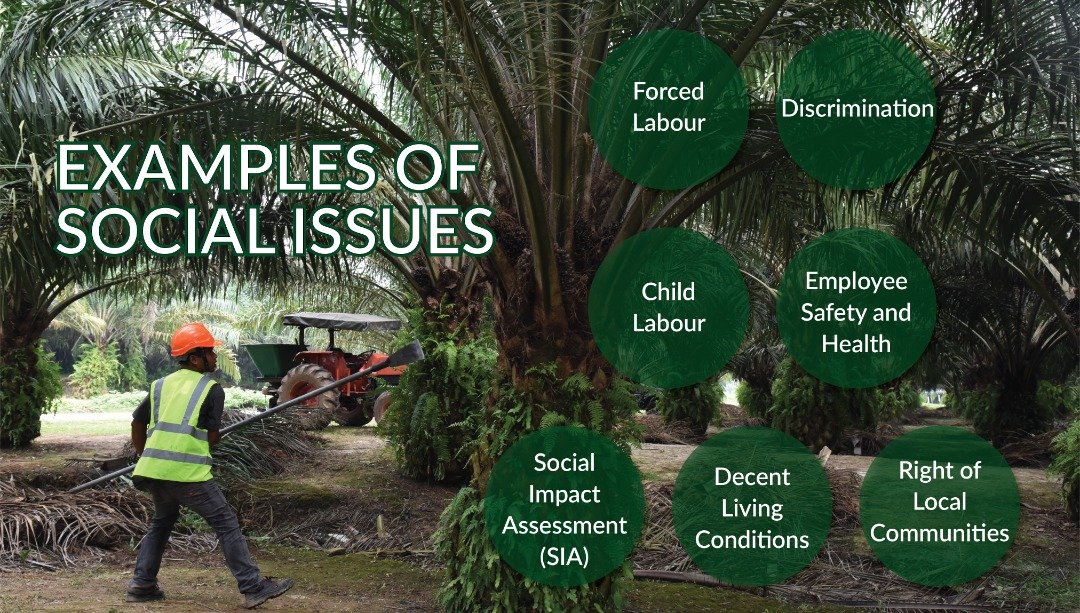
Compliance with MSPO certification or regulation related to the palm oil industry would positively affect financial performance as it fulfills the demand for certified palm oil and helps to provide higher profits to the palm oil companies. As the Traceability requirements from the MSPO certification can enhance the overall profitability, improved palm oil companies’ efficiency and productivity, as well as give better access to the international markets, the Best Management Practices (BMP) in the MSPO will particularly be able to minimise the operational cost.
MSPO is developed to establish, improve, and implement the operational practices of the Malaysian sustainability system by taking all three (3) key elements of people, planet, and profit into account. The MSPO has become a stepping-stone for Malaysia’s long-term commitment to the sustainable production of palm oil. Additionally, MSPO facilitates to deny that the Malaysian palm oil industry adversely affects the environment and mitigates the pressure from anti-palm oil lobbyists and Western NGOs.
